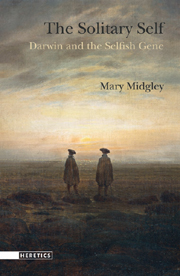Book contents
6 - The self's strange adventures
Summary
Who are we?
How, then, did modern individualism arise? No doubt, if Thomas Hobbes had not lived, someone else would have set it off and would be hailed as its founder. The kind of communal, hierarchical thinking that we now call feudal was becoming unworkable, so someone else would have attacked it. But since Hobbes, with his deep ardour and amazing turns of phrase, was actually present, he has become known as its spokesman. And although much of what he wrote is far more subtle than his later reputation would suggest, his influence on European thought has been so strong that it is now reasonable to say that Hobbes invented the modern ego – the ego that thinks it exists quite on its own.
We shall concentrate here, then, on his extreme statements, the mantras that have caught on and are still affecting our lives, without trying to do justice to his subtleties. Central to these mantras was surely his cry, in Leviathan, that the natural state of human life was one of ceaseless “war of all against all”. Human beings, he said, were naturally pure, relentless egoists who could only be brought to live in harmony by fear of the threatening power of government. “Of the voluntary acts of every man the Object is some good to himself” Without government, therefore, their life would be just a zero-sum game: “solitary, poor, nasty, brutish and short” (pt I, ch. 13).
- Type
- Chapter
- Information
- The Solitary SelfDarwin and the Selfish Gene, pp. 117 - 138Publisher: Acumen PublishingPrint publication year: 2010

